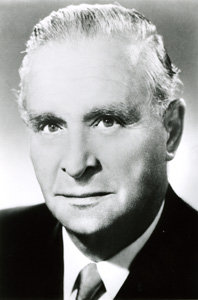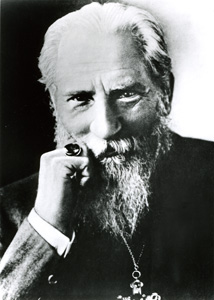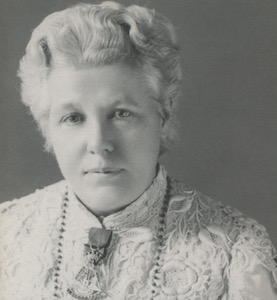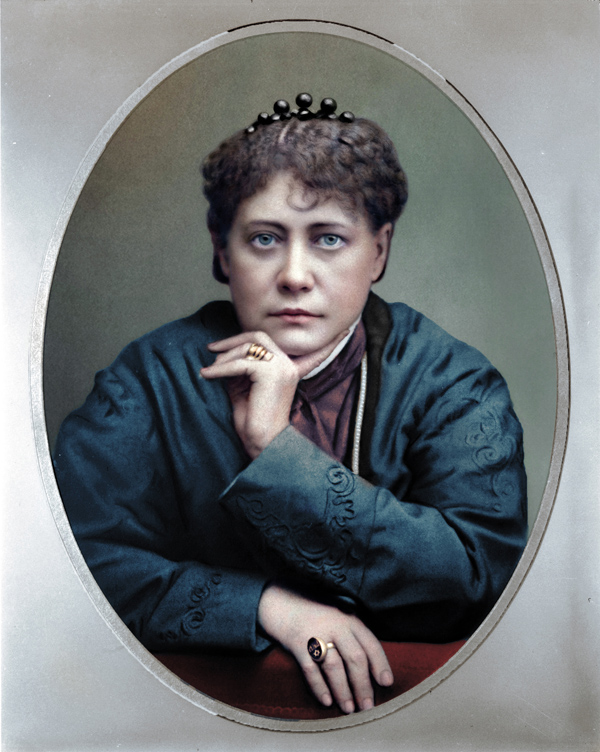|
From Gems from the East (quotation changes daily) |
|
Who We Are; What We Study The Tucson (Arizona, USA) Study Center of the Theosophical Society in America meets weekly using Zoom. If you would like to attend on Zoom, from anywhere in the world, please email our Secretary, Alan Harris, for information and the Zoom link. There is no fee, and membership in the Theosophical Society is not required. We meet to study and discuss the Ageless Wisdom as written down by (for example) H.P. Blavatsky, Annie Besant, Charles W. Leadbeater, Geoffrey Hodson, and other theosophical writers (see photos and excerpts below). If the information below interests you and you are in harmony with the Society's three objects, you may wish to join the Theosophical Society. Vision - Mission - Ethics The Theosophical Society in America:
Not only does the Society have a vision of union with one another, and a mission of exploration, but also an ethic of putting these high ideals into action. We invite you to explore with us and join us in the great adventure. Membership in the Theosophical Society is open to those who are in sympathy with its three declared Objects:
In order to become more familiar with Theosophy (many resources), you may read the excerpts below and/or click here for an index of ebooks containing links to on-line theosophical books and other publications that are free for the reading. If you have questions or would like more information, please email our secretary, Alan Harris. |
 by Geoffrey Hodson (1886-1983) [Note: The word "man" is used in the generic sense of man, a human being, and therefore inclusive of both men and women.] 
from Light of the Sanctuary, p. 401  by Geoffrey Hodson I suggest that the "study of basic Theosophy" include:
from Sharing the Light, Volume 2, p. 463 (footnote 2)  by Charles W. Leadbeater (1854-1934) 
[Theosophy] deals with the present by describing what man really is, as seen by means of developed faculties. It is customary to speak of man as having a soul. Theosophy, as the result of direct investigation, reverses that dictum, and states that man is a soul, and has a body – in fact several bodies, which are his vehicles and instruments in various worlds. These worlds are not separate in space; they are simultaneously present with us, here and now, and can be examined; they are the divisions of the material side of Nature – different degrees of density in the aggregation of matter.... Man has an existence in several of these, but is normally conscious only of the lowest, though sometimes in dreams and trances he has glimpses of some of the others. What is called death is the laying aside of the vehicle belonging to this lowest world, but the soul or real man in a higher world is no more changed or affected by this than the physical man is changed or affected when he removes his overcoat. All this is a matter, not of speculation, but of observation and experiment.  by Annie Besant (1847-1933) 
Nothing is so fatal to progress, nothing so discouraging to the growth of the inner nature, as the continual repetition of that which is not true: that we are fundamentally and essentially wicked, not divine. It is poison at the very heart of life; it stamps one with a brand which is hard indeed to throw off. If we want to give even the lowest and most degraded a sense of inner dignity, which will enable them to climb out of the mud in which they are plunged to the dignity of a divine human nature, we must tell them of their essential divinity, that in their hearts they are righteous and not foul. For it is just in proportion that we do so, that within them there will be faint stirrings of the spirit, so overlaid that they are not conscious of it in their ordinary life. If there is one duty of preachers of religion more vital than another, it is that all who hear them shall feel the stirring of the Divine within themselves.  by Helena P. Blavatsky (1831-1891) [Note: The word "men" is used in the generic sense of men, human beings, and therefore inclusive of both men and women.] On the day when Theosophy will have accomplished its most holy and most important mission—namely to unite firmly a body of men of all nations in brotherly love and bent on a pure altruistic work, not on a labor with selfish motives—on that day only will Theosophy become higher than any nominal brotherhood of man. This will be a wonder and a miracle truly, for the realization of which Humanity is vainly waiting for the last eighteen centuries, and which every association has hitherto failed to accomplish.  Helena Petrovna Blavatsky (HPB) Founder of the Theosophical Society, 1875 Produced by the Valencia (Spain) Theosophical Studies Group Used with permission |